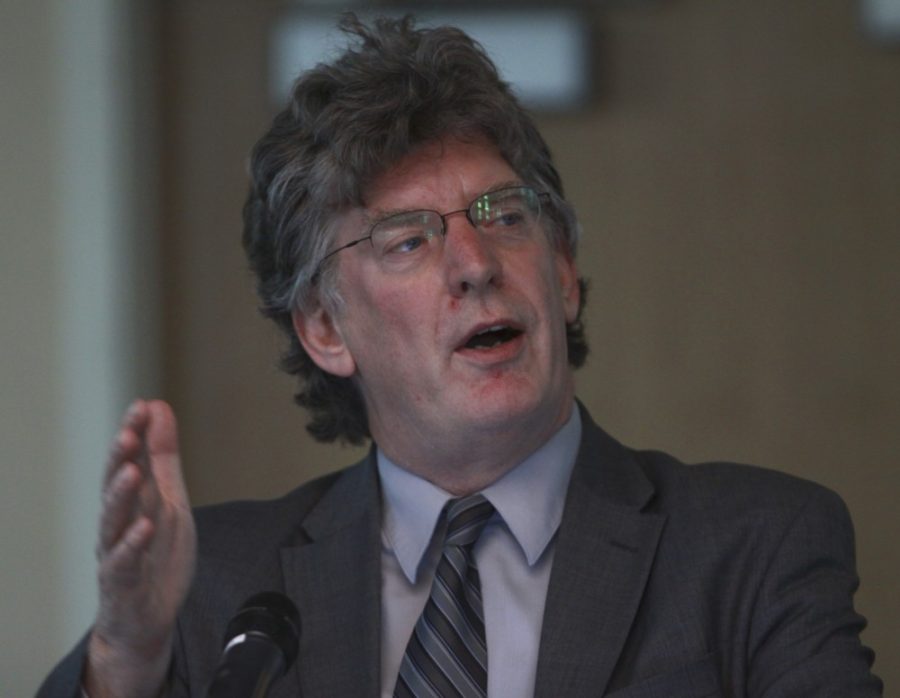Experts in higher education debated how American students and universities can better prepare themselves to integrate with education internationally on Thursday.
The panel discussion, titled “The End of Internationalization of Higher Education: Myth or Reality?” included four experts with backgrounds in the study of international higher education. Each brought their individual perspective on how internationalization has impacted academia, and where there are holes in the system that need to be addressed.
“It is an ongoing process,” said Hans de Wit, a professor from Amsterdam University of Applied Science. “Internationalization adapts to new circumstances.”
He categorized internationalization in two aspects — mobility and curriculum. International education is the reassurance of a student’s physical and scholarly experience of worldly affairs, he said, but the use of internationalization as a “numbers game” for an institution’s domestic reputation poses concerns.
“The reality is that most universities are established for national purposes,” de Wit said.
Universities are starting to care less about academic opportunities offered by global markets and more about how they utilize them to increase revenue, he added.
“There is a demand for U.S. higher education,” said Mariam Assefa, the executive director and CEO of World Education Services. Assefa explained that higher education is being bought and sold as a commodity, and as a result, there is a definite shortcoming in the United States’ academic talent. Internationalization, she said, can help fill universities’ financial gaps and increase talent within their student bodies.
“Everybody is looking everywhere for the most qualified people,” Assefa said.
Tacila Bezerra, a graduate student in educational psychology, said she thought of herself as one of these qualified students when she traveled from her homeland in Brazil to the UA. Some of her professors, she said, were unable to adapt to her as an international student with an undergraduate degree from a different country.
“I just felt really discriminated (against),” Bezerra said. When seeking help from a professor on improving her English for a writing assignment, she said she was blatantly instructed to drop the class entirely.
A lot of emphasis is put on educating international students and not enough on educating faculty, said Jenny Lee, an associate professor in the UA’s Center for the Study of Higher Education.
During the discussion, Lee explained the exploitation of international students that occurs at many national universities. An example of this, she said, was the recruitment of track and field athletes from Africa to an American university, where they would receive a degree that was virtually useless in the labor pool of their homeland.
“Internationalization overlooks the human scale,” Lee said. “It takes away the responsibility of the institution.”









